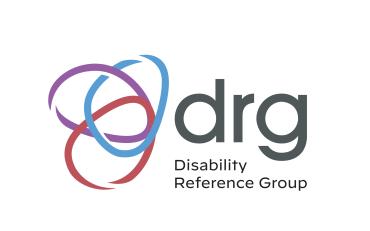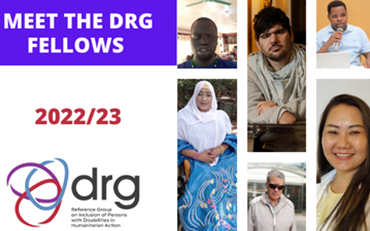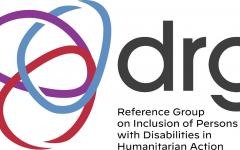IDA, UNICEF and CBM Global, through the Reference Group on Inclusion of Persons with Disabilities in Humanitarian Action (DRG), are proud to introduce the 2022-23 cohort of the DRG Fellowship program.

In 2019, the launch of the IASC Guidelines on Inclusion of Persons with Disabilities in Humanitarian Action marked an important point in efforts to ensure that persons with disabilities are fully included as both beneficiaries and actors in humanitarian response. The Reference Group aims to sustain gains made and further advance disability inclusive humanitarian action, for a real impact to be seen ‘on the ground’.
The Reference Group is a platform fostering cooperation between UN, International Agencies, NGOs and organizations of persons with disabilities in promoting disability inclusive humanitarian response, including, but not limited to, supporting the development, dissemination and implementation of key guidance materials, including the IASC Guidelines. The Group will build on and reinforce efforts of individual organizations in this regard; and links with broader processes for strengthening the quality and accountability of humanitarian action inclusive of persons with disabilities.
Membership of the Group is open to international, regional and local organizations of persons with disabilities (OPDs), non-governmental organizations (NGOs) and UN agencies, as well as interagency networks, multilateral or bilateral agencies, private sector, academics and others committed to promoting inclusion of persons with disabilities in humanitarian action.
From 2020 the Reference Group is co-chaired by the International Disability Alliance, CBM Global and UNICEF.
- You can join the group by filling this google form.
- For more information, please contact: rg.disabilityinclusion [at] gmail.com
Humanitarian Acronyms
In order to ensure clear understanding of humanitarian documents, DRG Co-Chairs have put together a list of commonly used humanitarian acronyms. This list will be updated frequently with new acronyms. Please click HERE to download the list in PDF and HERE to download the Word Format.
Related Documents

